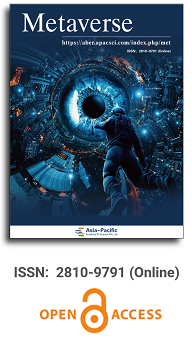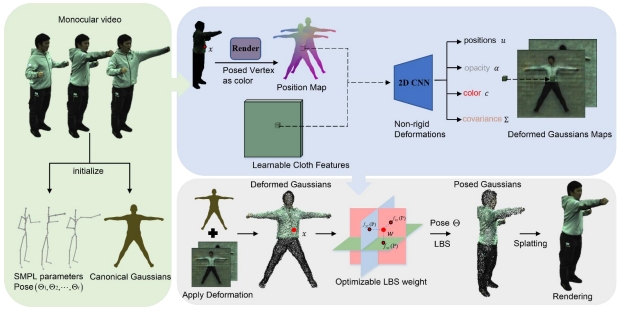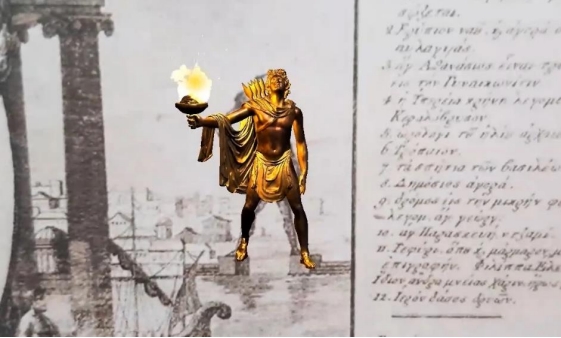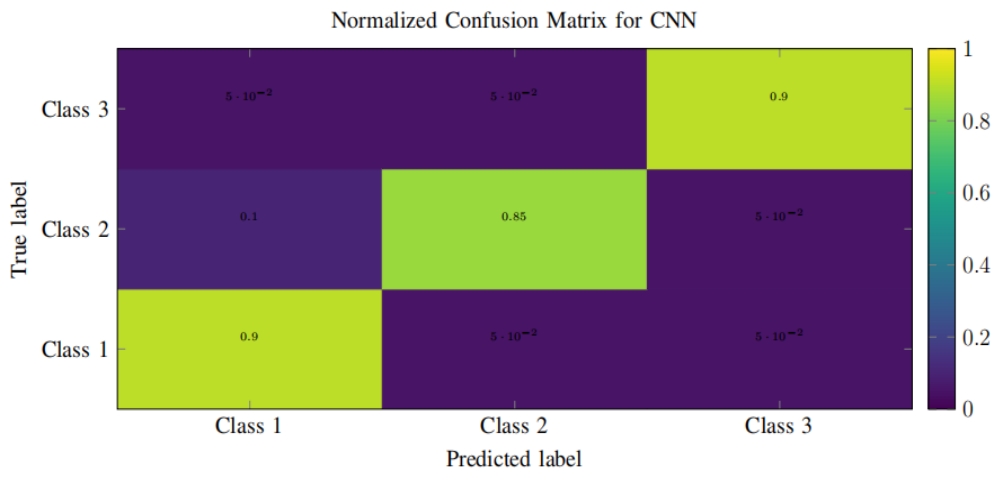
Asia Pacific Academy of Science Pte. Ltd. (APACSCI) specializes in international journal publishing. APACSCI adopts the open access publishing model and provides an important communication bridge for academic groups whose interest fields include engineering, technology, medicine, computer, mathematics, agriculture and forestry, and environment.



Inclusive metaverse in media arts education: New innovative-methodological proposal for inclusive school
Vol 4, Issue 2, 2023
Download PDF
Abstract
The paper briefly describes the inclusive school places the greatest emphasis on inclusive innovation, which revolves around fostering knowledge of media arts. The main goal is to investigate and analyze the incorporation of the metaverse through the complementary subject of media arts for inclusive educational purposes. This proposal was allowed to incorporate the virtual and three-dimensional environment used for students and teachers, exploring and interacting with various digital worlds. The analysis of the results was carried out through the contents of the Venn diagram and additional creation, attending to criteria of investigative interest of inclusive metaverse to demonstrate and represent the new preliminary ideas through the educational development of media arts and virtual environments. There are debates about the analysis of inclusive metaverse as the most advanced engineering and artistic technology project, which allows you to incorporate the methodological proposal associated with the complementary subject of media arts together with the interactive tools, making visible in materiality more complex didactics of students of different levels of school education in general. In conclusion, the methodological proposal of media arts for the inclusive metaverse, each student, each teacher, or each educational system could transform the next generation of participation and motivation towards school, depending on the artistic and technological expression that students had learned by using educational gamification, that is, they are better prepared to face the art technology and challenges of the future, bringing with them a spirit of innovation and collaboration, marking a path in the world of digital art.
Keywords
References
- Bernaschina D. ICTs and media arts: The new digital age in the inclusive school. Alteridad 2019; 14(1): 39–50. doi: 10.17163/alt.v14n1.2019.03
- Hurst W, Spyrou O, Tekinerdogan B, Krampe C. Digital art and the metaverse: Benefits and challenges. Future Internet 2023; 15(6): 188. doi: 10.3390/fi15060188
- Hutson J, Lang M. Content creation or interpolation: AI generative digital art in the classroom. Metaverse 2023; 4(1): 1–13. doi: 10.54517/m.v4i1.2158
- Fabiano A. Metaverse and new educational and inclusive paradigm. Some reflexions (Italian). Journal of Inclusive Methodology and Technology in Learning and Teaching 2023; 3(2): 1–12.
- Zallio M, Clarkson PJ. Designing the metaverse: A study on inclusion, diversity, equity, accessibility and safety for digital immersive environments. Telematics and Informatics 2022; 75: 101909. doi: 10.1016/j.tele.2022.101909
- Huynh-The T, Gadekallu TR, Wang W, et al. Blockchain for the metaverse: A Review. Future Generation Computer Systems 2023; 143: 401–419. doi: 10.1016/j.future.2023.02.008
- Chen X, Zou D, Xie H, Wang Fl. Metaverse in education: Contributors, cooperations, and research themes. IEEE Transactions on Learning Technologies 2023; 1–18. doi: 10.1109/TLT.2023.3277952
- Camilleri MA. Metaverse applications in education: A systematic review and a cost-benefit analysis. Interactive Technology and Smart Education 2023. doi: 10.1108/ITSE-01-2023-0017
- Lee HJ, Hwang Y. Technology-enhanced education through VR-making and metaverse-linking to foster teacher readiness and sustainable learning. Sustainability 2022; 14(8): 4786. doi: 10.3390/su14084786
- Hwang Y, Shin D, Lee H. Students’ perception on immersive learning through 2D and 3D metaverse platforms. Educational Technology Research and Development 2023; 71(4): 1687–1708. doi: 10.1007/s11423-023-10238-9
- Wang Y, Lee LH, Brand T, Hui P. Re-shaping post-COVID-19 teaching and learning: A blueprint of virtual-physical blended classrooms in the metaverse era. In: Proceedings of the 2022 IEEE 42nd International Conference on Distributed Computing Systems Workshops (ICDCSW); 10 July 2022; Bologna, Italy. pp. 241–247.
- Galea ALF. The metaverse in education (Spanish). Available online: https://www.acta.es/medios/articulos/formacion_y_educacion/147001.pdf (accessed on 14 September 2023).
- Vlachogianni P, Tselios N. Perceived usability evaluation of educational technology using the System Usability Scale (SUS): A systematic review. Journal of Research on Technology in Education 2022; 54(3): 392–409. doi: 10.1080/15391523.2020.1867938
- Park S, Kim S. Identifying world types to deliver gameful experiences for sustainable learning in the metaverse. Sustainability 2022; 14(3): 1361. doi: 10.3390/su14031361
- Dahalan F, Alias N, Shaharom MSN. Gamification and game based learning for vocational education and training: A systematic literature review. Education and Information Technologies 2023; 1–39. doi: 10.1007/s10639-022-11548-w
- Camacho-Sánchez R, Rillo-Albert A, Lavega-Burgués P. Gamified digital game-based learning as a pedagogical strategy: Student academic performance and motivation. Applied Sciences 2022; 12(21): 11214. doi: 10.3390/app122111214
- Thiell ML. Exploring using game-based learning and gamification in a secondary classroom to increase engagement. Available online: https://scholarworks.gvsu.edu/gradprojects/216 (accessed on 14 September 2023).
- de Carvalho CV, Coelho A. Game-based learning, gamification in education and serious games. Computers 2022; 11(3): 36. doi: 10.3390/computers11030036
- López-Belmonte J, Pozo-Sánchez P, Moreno-Guerrero AJ, Marín-Marín JA. We’ve reached the GOAL. Teaching methodology for transforming learning in the METAVERSE. A teaching innovation project. Metaverse Basic and Applied Research 2023; 2(30): 1–9. doi: 10.56294/mr202330
- Soriani A, Bonafede P. Metaverse and education: Which pedagogical perspectives for the school of tomorrow? Journal of Inclusive Methodology and Technology in Learning and Teaching 2023; 3(1).
- Hwang GJ, Chien SY. Definition, roles, and potential research issues of the metaverse in education: An artificial intelligence perspective. Computers and Education: Artificial Intelligence 2022; 3: 100082. doi: 10.1016/j.caeai.2022.100082
- Farjami S, Taguchi R, Nakahira KT, et al. Multilingual problem based learning in metaverse. In: König A, Dengel A, Hinkelmann K, et al. (editors). Knowledge-Based and Intelligent Information and Engineering Systems. Springer, Berlin, Heidelberg; 2011. pp. 499–509.
- Kye B, Han N, Kim E, et al. Educational applications of metaverse: Possibilities and limitations. Journal of Educational Evaluation for Health Professions 2021; 18: 32. doi: 10.3352/jeehp.2021.18.32
- Bilotti U, Dario DD, Palomba F, et al. Machine learning for educational metaverse: How far are we? In: Proceedings of the 2023 IEEE International Conference on Consumer Electronics (ICCE); 6–8 January 2023; Las Vegas, NV, USA. pp. 1–2.
- Valencia MLO, Ordoñez-Zúñiga NL, Mantilla-Ordóñez JC, et al. Analysis of metaverse tools and their impact in educational contexts. Sapienza: International Journal of Interdisciplinary Studies 2022; 3(2): 610–630. doi: 10.51798/sijis.v3i2.366
- Soroko NV. Applications of the metaverse as a tool for creating educational materials for secondary school. Available online: https://lib.iitta.gov.ua/732789/1/ЗБІРНИК__матеріалів_конференції_16_11_22.pdf#page=21 (accessed on 14 September 2023).
- Lee LH, Lin Z, Hu R, et al. When creators meet the metaverse: A survey on computational arts. arXiv 2021; arXiv:2111.13486. doi: 10.48550/arXiv.2111.13486
- Li Y, Xiong D. The metaverse phenomenon in the teaching of digital media art major. In: Proceedings of the 2021 Conference on Art and Design: Inheritance and Innovation (ADII 2021); 29–30 December 2021; Zhengzhou, China. pp. 348–353.
- Tasa UB, Görgülü T. Meta-art: Art of the 3-D user-created virtual worlds. Digital Creativity 2010; 21(2): 100–111. doi: 10.1080/14626261003786251
- Hwang S, Koo G. Art marketing in the metaverse world: Evidence from South Korea. Cogent Social Sciences 2023; 9(1): 2175429. doi: 10.1080/23311886.2023.2175429
- Wang Y, Su Z, Zhang N, et al. A survey on metaverse: Fundamentals, security, and privacy. IEEE Communications Surveys & Tutorials 2023; 25(1): 319–352. doi: 10.1109/COMST.2022.3202047
- Sun J, Gan W, Chao HC, Yu PS. Metaverse: Survey, applications, security, and opportunities. arXiv 2022; arXiv:2210.07990. doi: 10.1145/arXiv.2210.07990
- Wang X, Wang J, Wu C, et al. Engineering brain: Metaverse for future engineering. AI in Civil Engineering 2022; 1(2): 1–18. doi: 10.1007/s43503-022-00001-z
- Fernandes FA, Werner CML. A scoping review of the metaverse for software engineering education: Overview, challenges and opportunities. PRESENCE: Virtual and Augmented Reality 2023; 1–56. doi: 10.1162/pres_a_00371
- Fernandes F. Towards metaverse engineering. Available online: https://www.researchgate.net/publication/362590792 (accessed on 14 September 2023).
- Kit KT. Sustainable engineering paradigm shift in digital architecture, engineering and construction ecology within Metaverse. International Journal of Computer and Information Engineering 2022; 16(4): 112–115.
- Giannini T, Bowen JP, Michael C, Smith CH. Digital art and identity merging human and artificial intelligence: Enter the metaverse. In: Proceedings of the EVA London 2022 (EVA 2022); 4–8 July 2022; London, UK. pp. 1–7.
- Yu W, Chua TJ, Zhao J. Virtual reality in metaverse over wireless networks with user-centered deep reinforcement learning. arXiv 2023; arXiv:2303.04349. doi: 10.48550/arXiv.2303.04349
- Yu W, Chua TJ, Zhao J. User-centric heterogeneous-action deep reinforcement learning for virtual reality in the metaverse over wireless networks. IEEE Transactions on Wireless Communications 2023. doi: 10.1109/TWC.2023.3277226
Supporting Agencies
Copyright (c) 2023 Diego Bernaschina
License URL: https://creativecommons.org/licenses/by/4.0/

This site is licensed under a Creative Commons Attribution 4.0 International License (CC BY 4.0).

Prof. Zhigeng Pan
Professor, Hangzhou International Innovation Institute (H3I), Beihang University, China

Prof. Jianrong Tan
Academician, Chinese Academy of Engineering, China
Conference Time
December 15-18, 2025
Conference Venue
Hong Kong Convention and Exhibition Center (HKCEC)
...
Metaverse Scientist Forum No.3 was successfully held on April 22, 2025, from 19:00 to 20:30 (Beijing Time)...
We received the Scopus notification on April 19th, confirming that the journal has been successfully indexed by Scopus...
We are pleased to announce that we have updated the requirements for manuscript figures in the submission guidelines. Manuscripts submitted after April 15, 2025 are required to strictly adhere to the change. These updates are aimed at ensuring the highest quality of visual content in our publications and enhancing the overall readability and impact of your research. For more details, please find it in sumissions...






.jpg)
.jpg)

